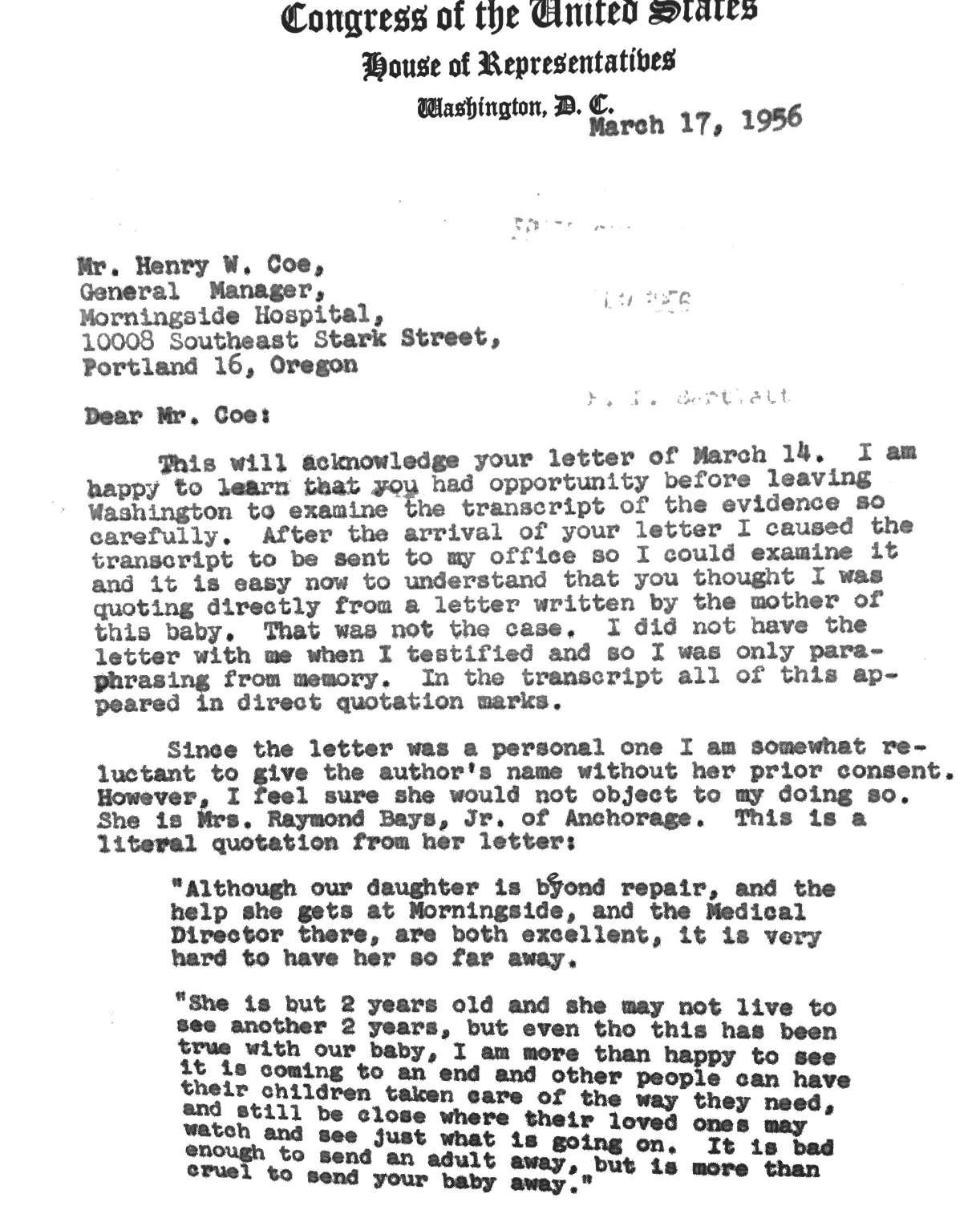Chapter: 3
Psychiatry and the People: Contestations Over Care
This chapter examines the controversies surrounding Morningside Hospital in the 1950s, looking at what it meant for a private psychiatric hospital to receive federal public funds, how public distrust of psychiatry fueled the hospital’s demise, and how Congressional debates over hospital practices affected psychiatric decision-making. What emerges through the history of Morningside is that psychiatric hospital practice in the U.S. was not just a matter for clinicians and patients; fears and beliefs about the role of both the state and private for-profit corporations in the mental and emotional well-being of American citizens impacted the functioning of mental health care, especially that practiced in hospital settings in mid-twentieth-century America. Thus Oregon Representative Edith Green became deeply involved—at the urging of her constituents—in whether and how Morningside was using occupational therapy to exploit patient labor, violating human rights by separating Alaska patients from their families, committing child abuse by treating babies and children within the hospital walls, and using criminal courts to hold people in mental and emotional distress against their will. We look at Green’s extensive archive of correspondence and legislative materials—available at the Oregon Historical Society—to draw out how what was happening at a private psychiatric hospital in Portland, Oregon, ended up being discussed on the floor of the U.S. Congress and taken up by psychiatrists, politicians and ordinary citizens all over the U.S. as well as in the Territory of Alaska.

E. L. Bartlett (Alaska Territory Representative to Congress) to Henry Coe (General Manager of Morningside Hospital), written March 17, 1956. The letter is from the Edith Green Collection, Oregon Historical Society, MSS 1424, Box 57, File Box 60-12.
